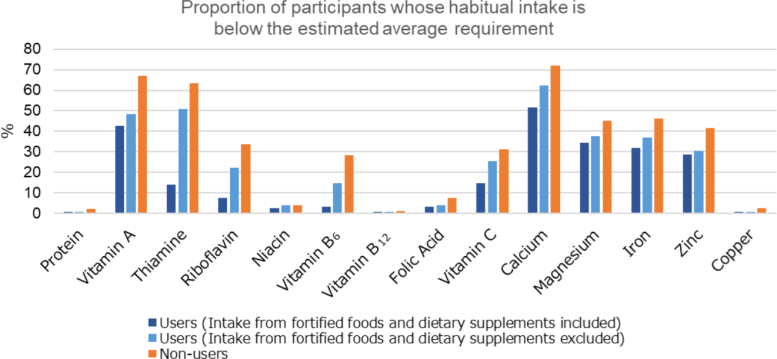
Fortified foods and supplements improve nutrient intake among Japanese, per Toho University research, though some risk excessive vitamin B6.
A team from Toho University’s Faculty of Medicine, led by Professor Keiko Asakura and Assistant Professor Minami Sugimoto, studied the dietary habits of the Japanese population based on data from 2012. They focused on how fortified foods and dietary supplements—often referred to as “health foods”—contribute to overall nutrient intake.
The insights gained from this research are expected to help shape health policies in Japan to enhance nutritional intake. The findings were published recently in the journal BMC Nutrition.
The key points are as follows:
- Users of fortified foods and/or dietary supplements had a higher intake of vitamins and minerals from base diets (i.e., diets excluding fortified foods and dietary supplements) than non-users, and a higher proportion met the adequate intake levels set by dietary reference standards.
- Fortified foods and/or dietary supplements contributed to the adequate intake of certain nutrients in their users.
- However, 2% of the users of fortified foods and/or dietary supplements had a risk of excessive vitamin B6 intake.

Reference: “Contribution of fortified foods and dietary supplements to total nutrient intakes and their adequacy in Japanese adults” by Minami Sugimoto, Keiko Asakura, Nana Shinozaki, Kentaro Murakami, Shizuko Masayasu and Satoshi Sasaki, 27 September 2024, BMC Nutrition.
DOI: 10.1186/s40795-024-00935-w
